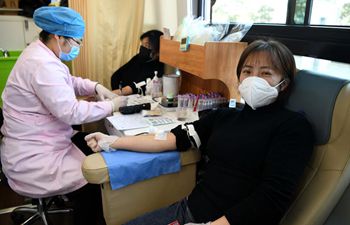JERUSALEM, Feb. 18 (Xinhua) -- Israeli scientists identified new markers that can help predict which cancer patients have a better chance of a positive response to immunotherapy treatments, Weizmann Institute of Science (WIS) in central Israel reported Tuesday.
According to the team, learning to predict which treatments are most likely to work is the first step in creating a personalized approach to curing cancer.
The WIS study, published in the journal Nature Communications, dealt with the problem of anti-cancer therapy, whereby most drugs do not have the same effect in patients with the same type of cancer.
The team first analyzed data from 470 melanoma patients that have been made available in the Cancer Genome Atlas (TCGA).
The researchers examined subunits of two types of protein complexes: "proteasome" and its variation, "immunoproteasome," both normally expressed in most cells.
Both complexes function as "cutters," reducing long proteins to short pieces called peptides.
These peptides are later presented on the cells' surface by molecules that "report" about new threats that the immune system needs to assess and address.
By testing the response of the immune cells from the same patients, the team showed that the immunoproteasome-formed peptides were more reactive compared to the peptides created by proteasome complexes.
Then, looking back at the details in the database, the team reported that the expression levels of the complexes were excellent predictors of the outcome, better than the tumor mutational burden, a biomarker that is currently used.
The team suggested that expression level of the immunoproteasome may be used as a biomarker for predicting better outcomes in melanoma and may improve patient matching to currently available immunotherapy.

















